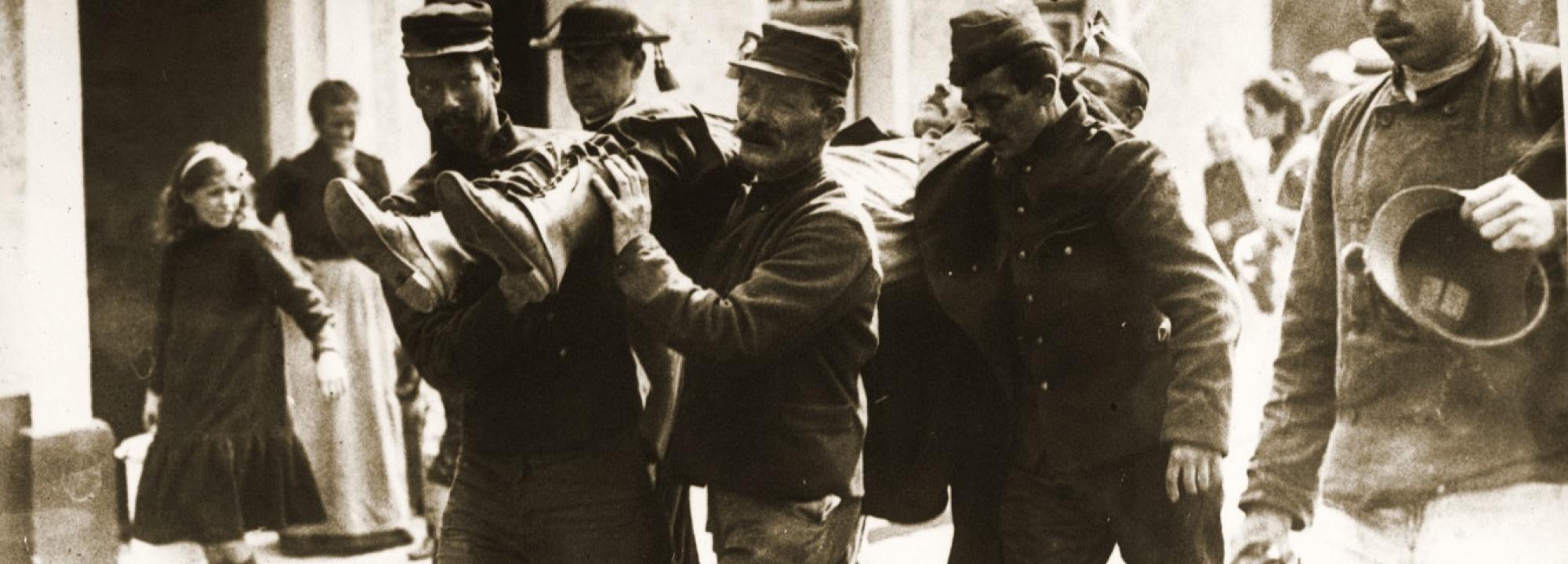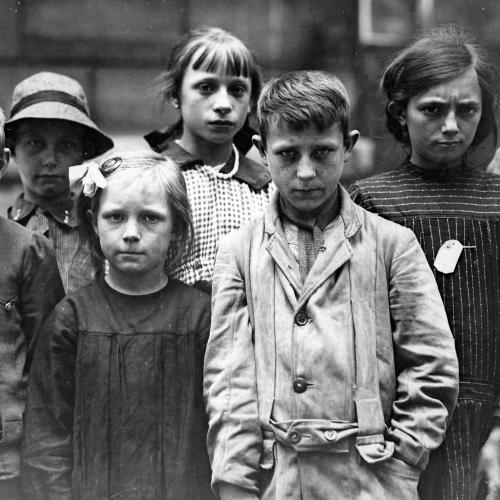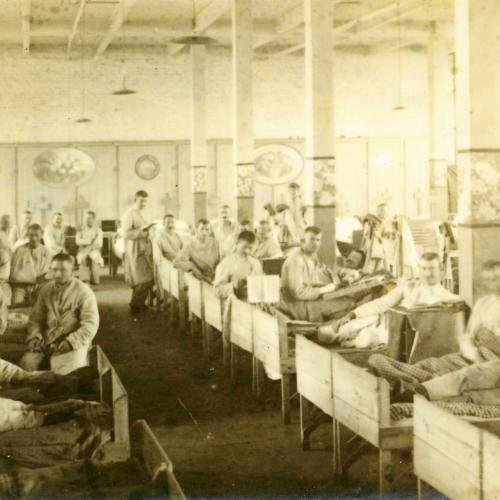Many wounded and sick Belgian civilians

SEVERELY BEATEN. Jules S. was 16 when he started working as labourer for the Belgian railway company. He lived in Deftinge, a village near to Lierde, and married Maria. He was deported in 1915 to perform compulsory labour along with his fellow villagers Jozef D, Raymond H., Cyriel and August D. After being sent to the Brie (Metz) labour camp, he returned home suffering from general debility, bronchitis and heart problems.
In the Brie camp, Jules was severely beaten several times not only on his arms and hips but also on the back of his neck. He had to be operated on in a German military hospital. In 1919 he started to recover and went back to working for the railways but in 1925 nervous symptoms began to appear: his hands were trembling, he found it difficult to walk and had problems speaking. In 1929, his lower limbs were completely paralysed so he was no longer able to walk. He was diagnosed with multiple sclerosis.
DISABLED FOR LIFE. Jules had to be looked after by a third party in his own home. The annuity received was substantially increased, while he was granted special compensation. He passed away in 1932, at 36 years of age.
SUFFERING WITHOUT COMPASSION. Victor C. worked in various factories near to Brussels. He married Françoise V. In the late summer of 1917, aged 35, he decided to cross the Dutch border to reach the frontline but was arrested near Hoogstraten. He was taken back to Brussels, where he was detained in the Kommandatur (German military command) and sentenced to be deported to the Belgian province of Luxembourg, where he stayed in the Straimont camp near Florenville, living every day, day in and day out, with 50 other deportees for the next six months. They stayed in a wooden shack, suffering from the cold during the 1917-1918 winter and surviving on beetroot and kohlrabi.
After the war, his companions in misfortune provided confirmation of his ordeal, telling how they saw Victor wasting away, troubled in particular by his left leg. He had a fractured femur and arthritis gradually set in. The German doctor repeatedly exempted him from work. When he was sent home in April 1918 his leg was 4 centimetres shorter, so he was unable to return to work in a factory. He then started working as a delivery driver.

PRISON AS A PLACE OF DEATH. Louis-François V., an insurance inspector from Schaerbeek, Brussels, was arrested on 13 November 1917, whereupon the Brussels War Council sentenced him in March 1918 to 11 years of hard labour for spying for the allies. After being held for several months in Saint-Gilles prison awaiting his trial he was transferred to Vilvoorde prison, from which he was released when the Armistice was declared. At 47 years of age, his state of health was such that he had to be fed up for 6 months.
Nervous system depression, sleep deprivation, loss of memory, greatly reduced muscular strength and quickly tired by the slightest effort. Digestive disorders with constipation and gastric pain. A much-reduced working capacity. He was never again 100% fit to work {in 1921} and the individual suffered from the time he spent in captivity for the rest of his days.
SAVED IN SWITZERLAND. 19-year-old Alfred D. from Brussels was deported in 1915 to the Sennelager camp in Germany for attempting to enlist in the Belgian army.
His health soon began to deteriorate and in October 1916 the authorities allowed him to join a convoy that would take him to Switzerland with other seriously ill prisoners. He had to wait another year before reaching there, although his TB had reached an advanced stage by then.
Your research.
Find out more about Belgian victims of war in your family or abroad.







![Démonstration pour les soins à donner aux blessés [infirmières montrant des gestes de survie à des civils] - BNF, rol 41914](https://belgiancivilians14-18.arch.be/sites/default/files/styles/story_linked/public/uploads/fields/field_story_img_1x1/n6931348_jpeg_1_1dm_survie_civild.jpg?itok=oXNGA563)